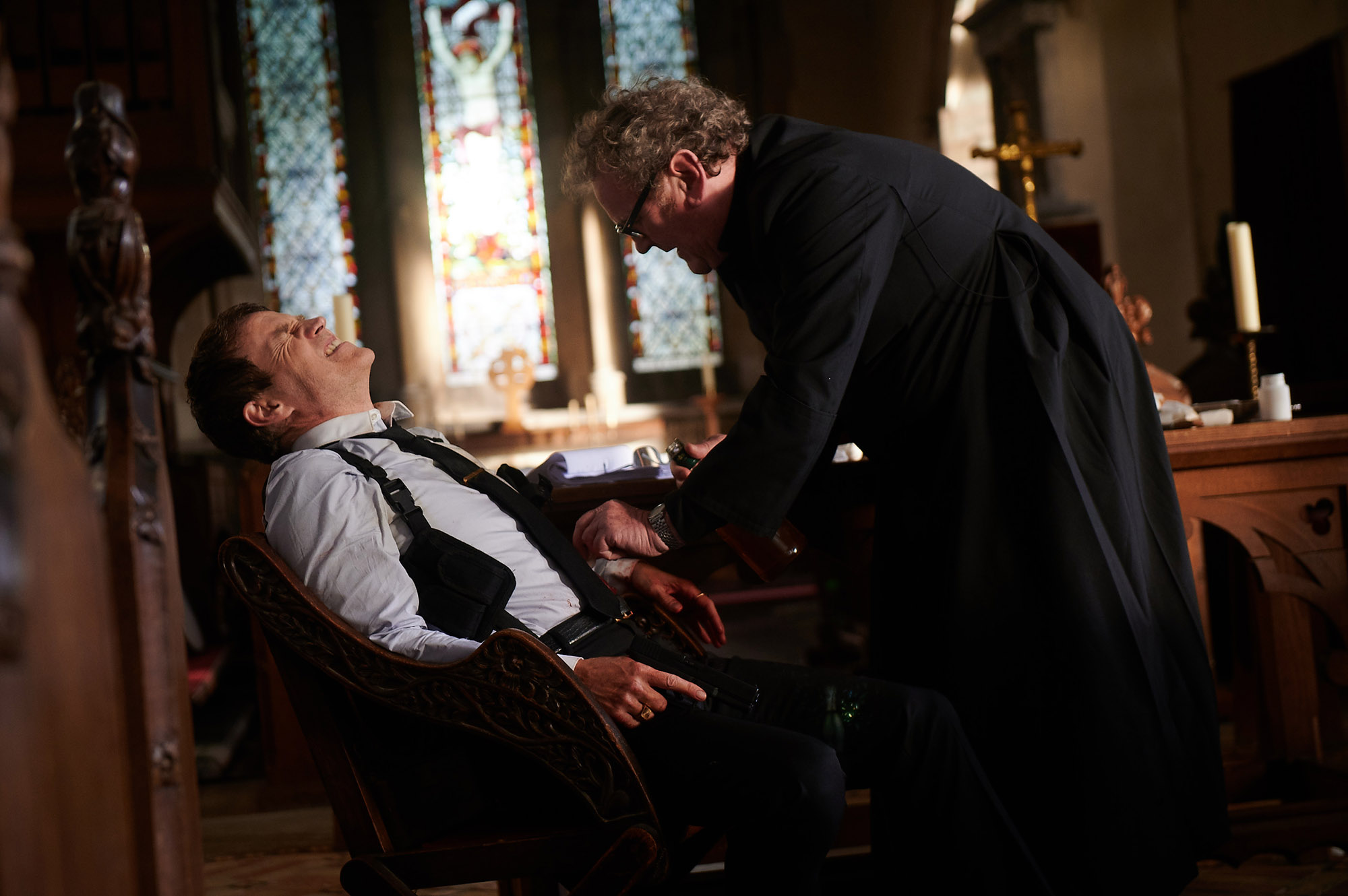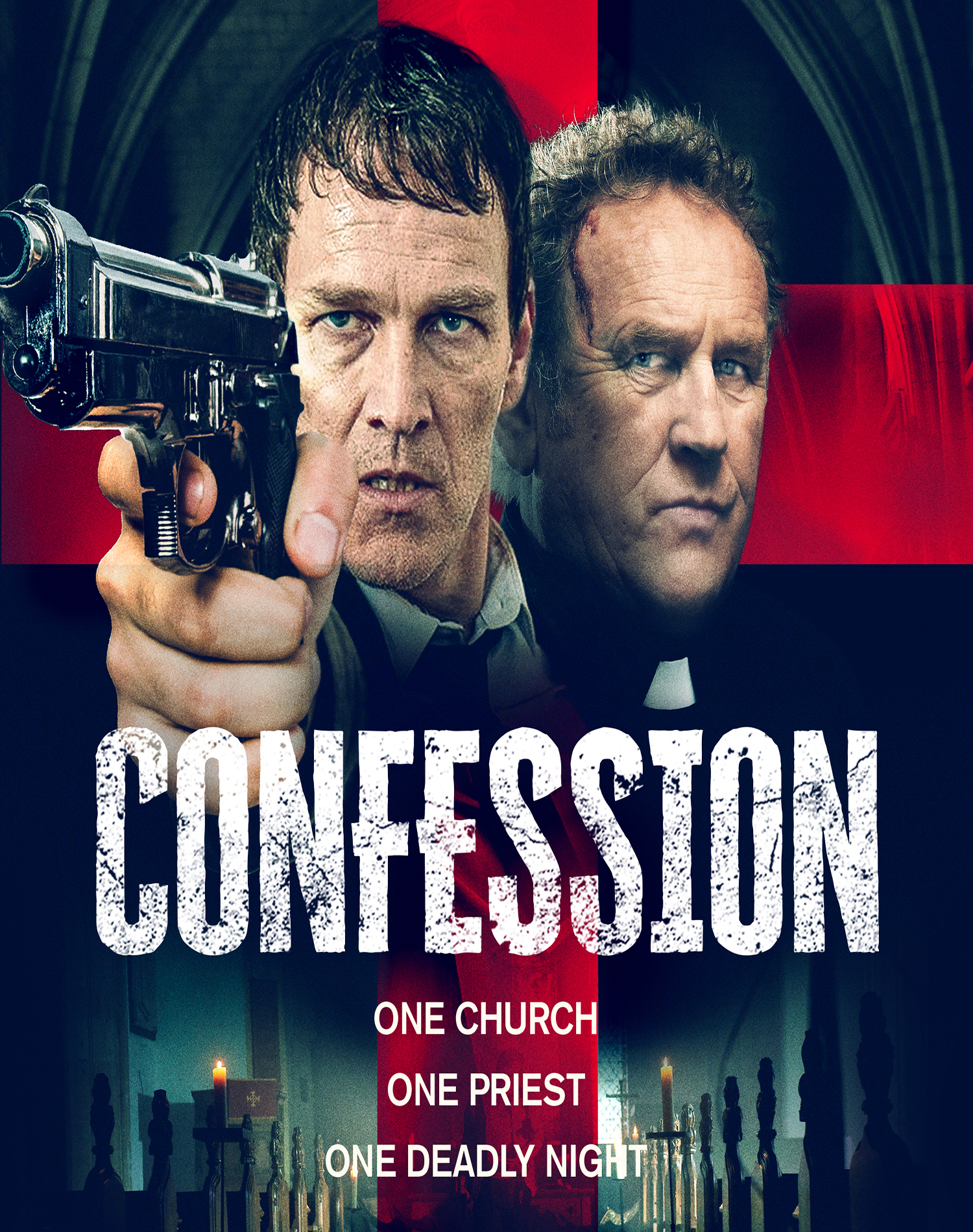Secrets and sins are unveiled, as two men are locked in a church on one fateful night.
The technique of “real-time” filming is a concept that has been attempted countless times over the years, with varying degrees of success. There are always a few things to look out for as well; first, do we really believe that this is in real-time, or is it inconsistent in relaying this idea? Secondly, is this merely a gimmick, a trick that doesn’t quite fit the story being told? Sidney Lumet is one director to have perfected this idea on more than one occasion; his debut film, 12 Angry Men, was an intensely invigorating character study, one that masterfully built pressure over time. With Lumet also gracing us with the brilliant Dog Day Afternoon, a film equal in tension but explodes from the beginning instead. Confession takes a little from both films in its quest to feel rugged and authentic, and for the most part, it does a decent job.

Director David Beton has gone for a formulaic concept here, with two men entering each other’s lives (a mysteriously injured man and a priest) with no inkling of their past. What begins as a slow start – with the two men conversing about life and the sins of their past – starts to pick up pace around the halfway mark as the story progresses, and secret after secret is eventually unveiled to us. These confessions send you twisting and turning down several paths of intrigue, and the characters are with us every step of the way.
I like Colm Meany though, if he’s not portraying boisterous loudmouth characters, then he can be found as a kindhearted, fatherlike figure with plenty of wisdom – something he finds himself as here, portraying Father Peter. And alongside him is Stephen Moyer, as Victor Strong (a typically villainous name), in a role where he isn’t the dashing vampire from True Blood. The two men form a genuine connection, as they begin to bond over time; discussing family life, their past misdemeanors, and the current situation as it gently bubbles up. Both men are emotionally crippled and struggle with past decisions, they have tasted the desperate pit of despair once before, and there may still be time for another trip soon.
Because the film is dialogue heavy; focusing on the power of conversation and confessions, the cinematography doesn’t need to be overcomplicated, which it does a fine job at. It is very subtle and allows the scene to create its own atmosphere. The camera work does change at various points throughout the film though; with it matching the slowly developing tension, the score also chimes in and evolves the film’s pacing, pulsing at corresponding moments, readying us for another major reveal. But with the film being quite short, the shocking moments of reveal sometimes feel abrupt and a little rushed, often crashing down on top of each other at times – it’s quite a lot to digest, that’s for sure.

And in a film full of bolts out of the blue, the final revelation is the most extravagant one out of the hat of mystery. Even the sheer exuberance of it couldn’t deter it from being unexpected, and honestly, quite exciting to say the least. Wannabe thrillers often lose the element of surprise in their build-up, with the ending becoming known long before it is disclosed. Thankfully, this doesn’t fall into the same trap as many others before it.
It all results in delivering an exciting little film, one that becomes submerged in its own grit, as well as exploring the development and growth of troubled souls, expanding on its original narrative core of corruption. What began as a slow film that struggled to kick into gear (something that was down to the scene needing to be set, and the establishment of its characters) turned into an intense action thriller. There wasn’t a huge amount of action, but it was realistic and restrained, characteristics that it really needed to be. A thrilling behemoth it is not, but it does have moments of excitement, and it was certainly enjoyable for the most part.

No Comment.